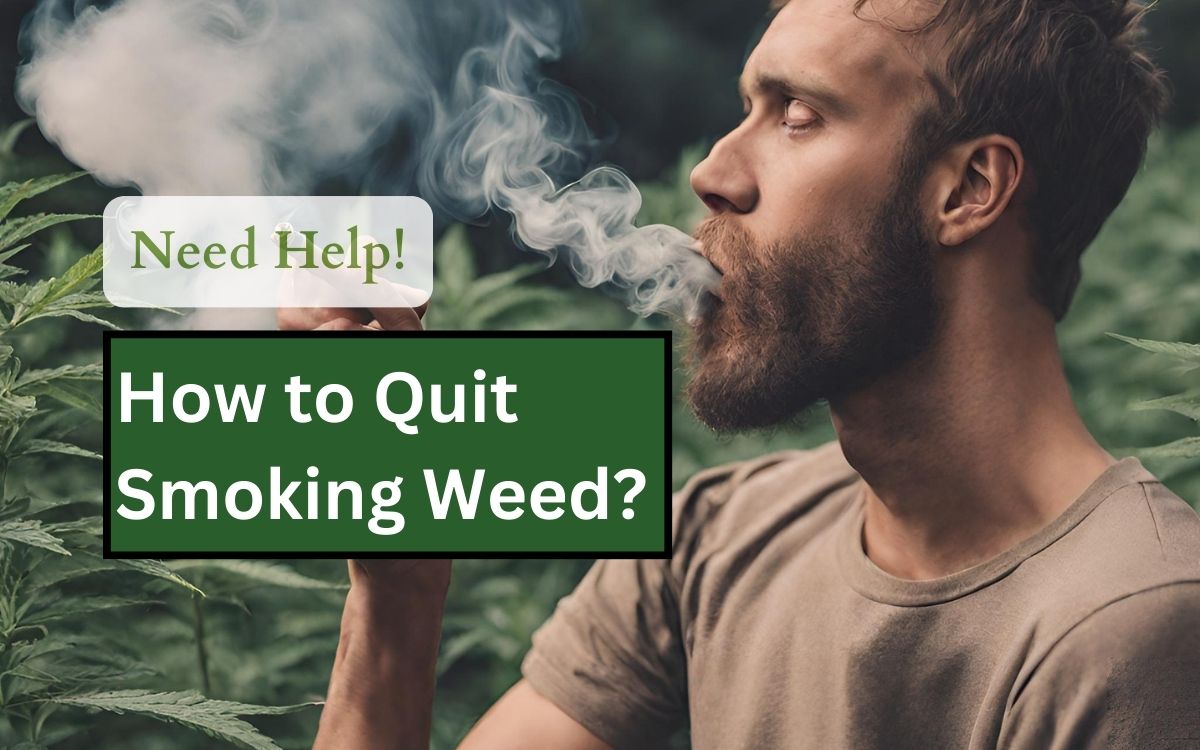Need Help! How to Quit Smoking Weed?

When you feel or your close one (a family member or friend) suggests that smoking weed is now affecting your career, your job, education, relation, etc. Quit Smoking Weed becomes a must.
Quitting smoking weed can be challenging but not impossible. Along with helpful tips and solid support from family and friends, the guidance of an expert increases your chances of successfully quitting weed.
No matter what plan You have decided how to quit smoking weed. But make sure that you are prepared to do so.
Read Also: Weed and Workouts
Getting Ready to Quit Smoking
Better preparation can make it easy to stop smoking even how much you take weed regularly. You need to be mentally prepared for withdrawal symptoms. You may experience when you are giving up or have given up.
A plan can make it easier no matter how hard it is for you to quit smoking weed.
Think Why You Smoke and how much
It is important to know why and how you started smoking, and the reasons why you are still smoking. Maybe the reason you started smoking is no longer a part of your life.
Usually, People start smoking with their friends smoke, or they want to look grown up during college, university, and job in their social circles. Alternatively, there may be no reason to do so.
Before quitting you must know How much you consume weed. With this too:
- Day and time of smoke,
- Where and with whom,
- Your smoking doses, If you are unaware then ask the weed dispensary you are buying from.
- What you feel before and after you smoke.
Your Quit Day Preparation
You can make a plan for quitting smoking day as below:
- Choose the day when you feel relaxed, off day.
- Notify friends and family about your quit day, and ask them not to offer you to smoke weed.
- Remove all cigarettes, ashtrays, and weed products from your home, car, and workplace.
- Ask friends and family to stay away from you if they smoke and/or possess smoking accessories.
- Stock up on your favorite verbal options that can be helpful, e.g. coffee stirrers, carrot sticks, hard candy, sugarless gum, cinnamon sticks, straws, and/or toothpicks.
- Establish a support system with a medical professional, a group program, or a friend or family member who is willing to help you.
- Analyze your past efforts, marking what worked and what didn’t.
Successfully quitting smoking weed depends on your planning and commitment. Without hesitation, seek the help of medical professionals and acquaintances who have successfully quit smoking.
Cut down All over: how much you use, when and where:
This is helpful. Instead of quitting all at once, you should gradually reduce the number of cigarettes and the number of times you smoke. This will have a positive effect in terms of reducing the amount of nicotine in your body as well as reducing the cravings for smoking weed.
You should avoid where you have the urge to smoke, and when you have a strong urge.
What do on Quitting Day:
Over time, using tobacco becomes a compulsion or Let’s say it has become a strong habit. Most people have the urge to smoke when they wake up in the morning, after finishing a meal, drinking coffee or tea, or during a break at work. Knowing the link between the trigger and tobacco use, and breaking it will help you stop.
What should be included in the planning list on the day of leaving
- Do not use tobacco at all. That means not a single puff!,
- Plan to stay busy, walk and exercise, focus on other hobby-related activities,
- Drink more water than usual, and take juices,
- if you like, use nicotine replacement
- Join a nearby quit class,
- Avoid situations that intensify the urge to use tobacco,
- Make distance from the smokers, especially when smoking,
- Consider changing your routine, such as taking a new route to work, drinking coffee instead of tea, and vice versa, and switching up eating places with different foods
Positive Impact of Quit Weed Smoking
When you quit smoking weed, you return to your pre-smoking social life. It will better your social relationships. Additionally, it will have a positive effect on physical health, including improving respiratory health and sleep. It proves helpful in stabilizing mood and reducing anxiety and depression.
Benefits of Quitting Smoking Weed
Quitting weed smoking means you are regaining your life, bringing joy and satisfaction in life.
Positive effects can be seen in career, personal development, friendships, relationships with family members, intimate relationships, and more. Quitting marijuana can help you rekindle these bonds and commitments.
Better sleep quality is crucial for the body and brain’s health and overall recovery. Studies show that smoking weed excessively disrupts your quality of sleep. Quitting Weed can help you achieve better sleep quality.
Regular smoking can affect your ability to process information and form memories. Some studies suggest that long-term THC exposure can accelerate the age-related loss of hippocampal neurons. In this way, quitting marijuana can protect your memory from deterioration.
